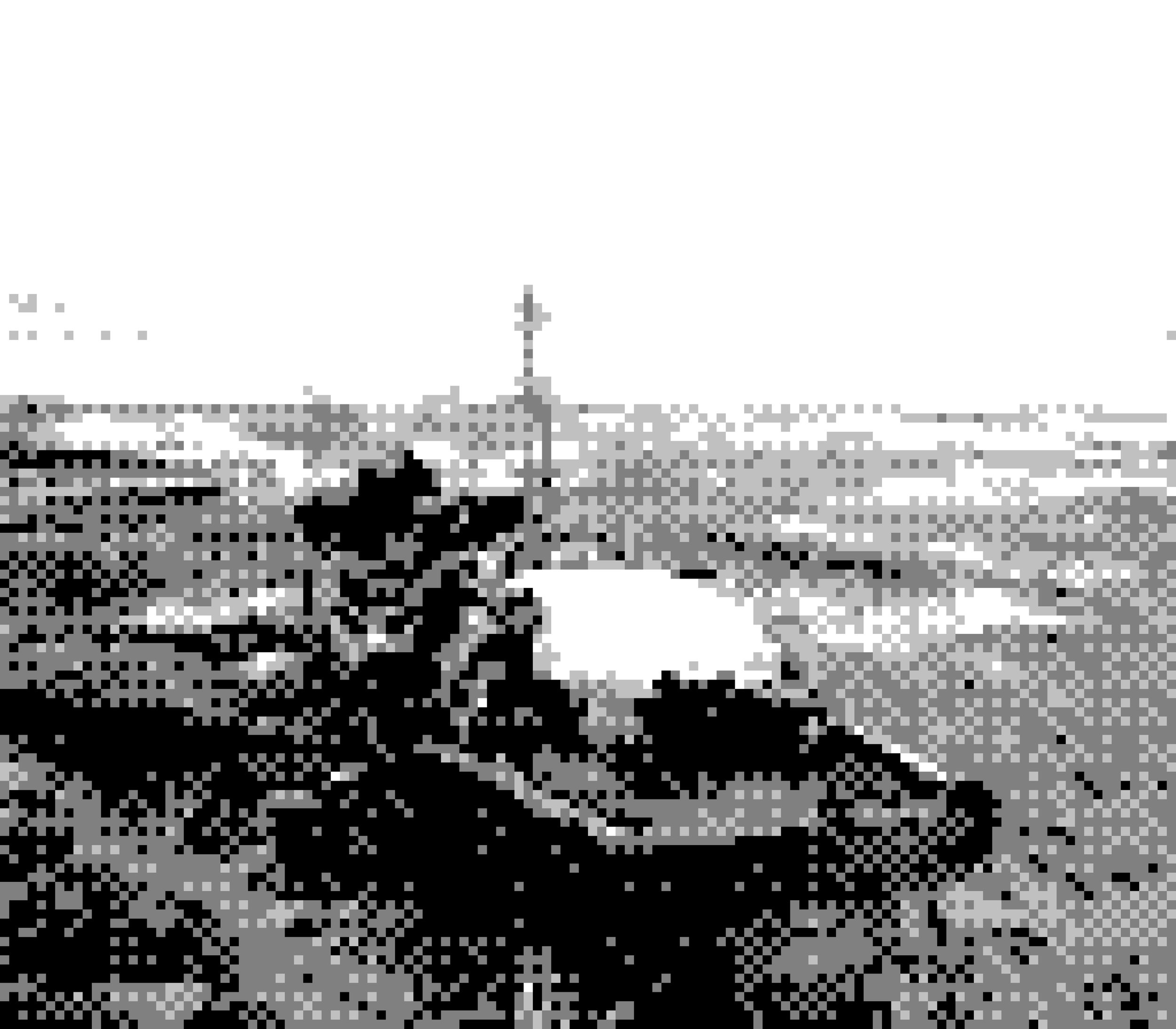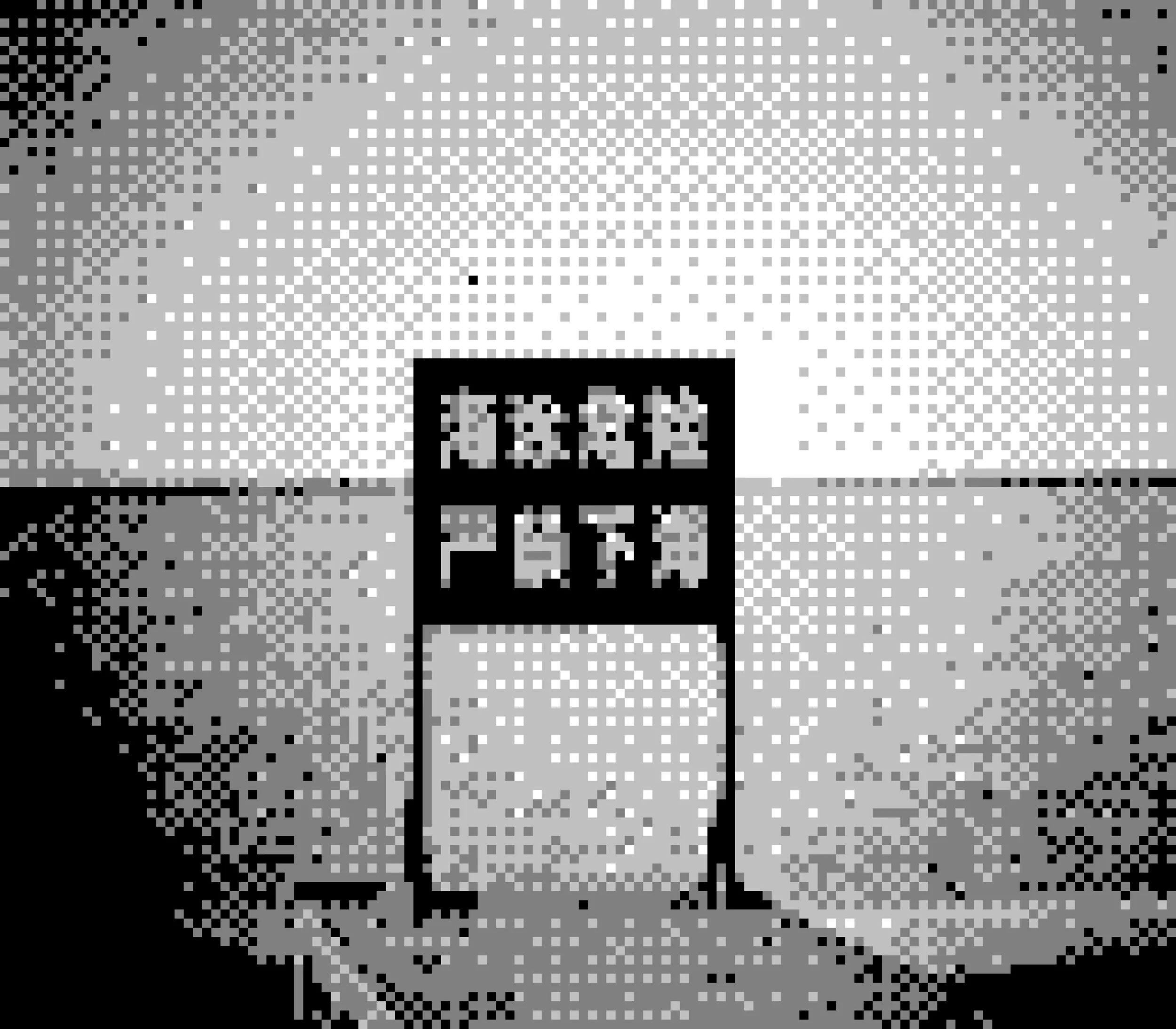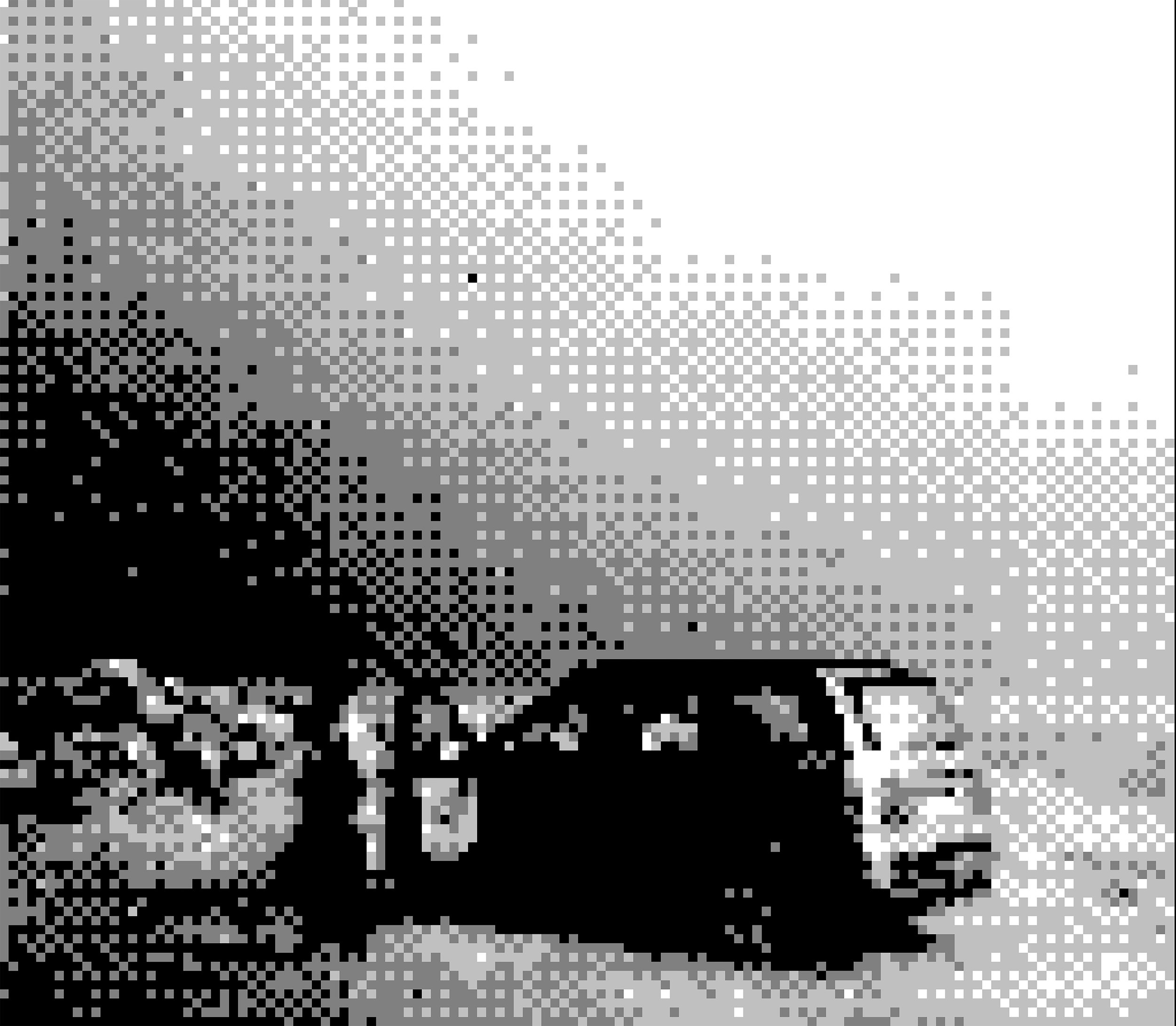I spent my entire childhood in a coastal town called Fuhai, just fifteen minutes by car from the East China Sea. Growing up so close to the ocean, I expected the sea to be a place of beauty—blue waves, soft sand, seagulls, and palm trees. But what I saw was different: mudflats, debris, the sharp smell of decay. As a child, I used to insist to others: “That’s not the sea.” But over time, I compromised. I began to accept that this was my sea. Eventually, I even tried to convince others of the same. This emotional contradiction—between expectation and reality—has shaped my relationship with the ocean and formed the foundation of this work.
For this project, I chose to photograph using a modified Game Boy camera. All the images are pixelated, low-resolution, and monochrome. This choice wasn’t just aesthetic—it was deeply personal. The Game Boy, a device from my childhood, reflects the way I remember the sea: fragmented, imperfect, and full of unresolved feelings. The pixelated images become a metaphor for memory itself—blurry, reduced to emotional outlines rather than visual detail. Walking along a coastal road called Shiyitang Road, I began photographing the sea again—not to document it, but to understand it. This process helped me reconnect with my childhood, my changing perspective, and my own evolving sense of place and identity.
我的整个童年都在一个叫“附海镇”的地方度过。那里离东海只有十五分钟车程。按理说,大海应该是亲切、熟悉的。但对我来说,它一直是一种矛盾的存在。 在我的想象中,大海是蓝色的,有细软的沙滩、飞翔的海鸥和摇曳的椰子树。可现实中,我看到的大海是灰褐色的,是淤泥、垃圾、刺鼻的气味和长满水草的滩涂。小时候,我努力告诉别人:“那不是海。”后来,我妥协了。我开始告诉自己:“这就是海。” 这种从拒绝到接受的过程,像是童年情感的一种训练,也是一种失落。
为了表达我对大海复杂的情感,我选择用一台改装的 Game Boy 游戏机进行拍摄。所有的图像都是像素化的、低分辨率的,带着浓厚的复古和失真感。这个选择并不是出于技术上的挑战,而是一种情绪的回溯。Game Boy 是我童年时代的记忆物,它所呈现的模糊图像,恰恰像极了我对童年和大海的记忆——粗糙、不清晰,却深深扎根于心。 我沿着一条叫“十一塘路”的海岸线缓慢行走,用像素的方式重新认识这个熟悉又陌生的地方。这些影像不仅是记录,更像是一次自我对话的过程。它让我重新回到童年,也重新思考什么是真实的“海”。
It is the sea
2020-2023



























